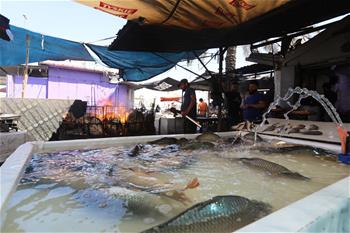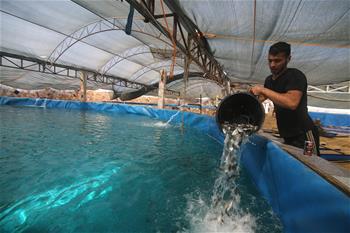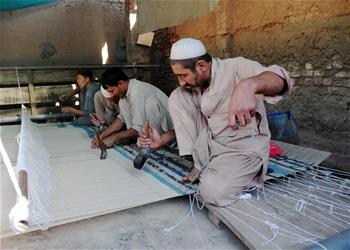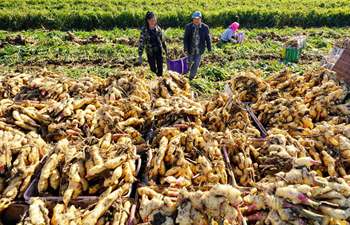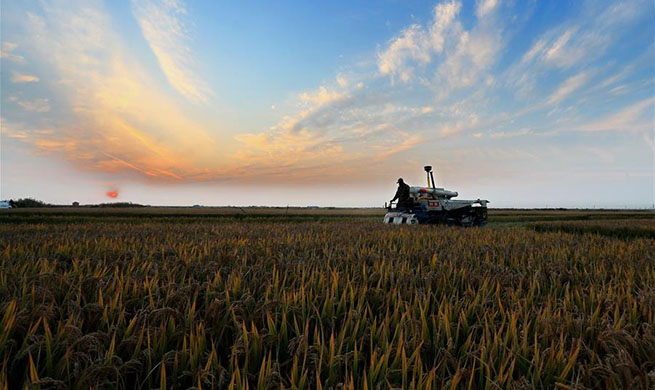CAPE TOWN, Oct. 15 (Xinhua) -- South Africa is faced with the triple burden of malnutrition-undernutrition, hidden hunger and overweight-among children under five, the United Nations Children's Fund (UNICEF) said on Tuesday.
Of the South African children under five, 1.7 million (about 27.4 percent) are stunted - or too short for their height, UNICEF said in a report emailed to Xinhua.
The report, titled "The State of the World's Children 2019: Children, food and nutrition," also shows some 3.7 million (61 percent) children under five suffer from anaemia and 762,615 (13 percent) are overweight.
The country has the highest-level overweight among children under five in Eastern and Southern Africa, the report says.
According to the report, South Africa's children and adolescents-especially the school-going ones - are increasingly consuming more of the less nutritious - unhealthy foods and sugar-sweetened beverages.
The greatest burden of malnutrition in all its forms is shouldered by children and adolescents from the poorest and most marginalized communities, the report notes.
Only one in five children aged six months to two years from the poorest households eats a sufficiently diverse diet for healthy growth, the report says.
The report warns that poor eating and feeding practices start from the earliest days of a child's life.
Though breastfeeding can save lives, for example, only 42 percent of children under six months of age are exclusively breastfed and an increasing number of children are fed infant formula.
In South Africa, even though exclusive breastfeeding for the first six months of life has increased to 32 percent in 2016 from eight percent in 2003, a quarter are not breastfed at all, according to the report.
Worldwide, at least one in three children under five - or some 200 million - is either undernourished or overweight, the report shows.
"Millions of children subsist on an unhealthy diet because they simply do not have a better choice," said Henrietta Fore, UNICEF Executive Director.
"The way we understand and respond to malnutrition needs to change: it is not just about getting children enough to eat; it is above all about getting them the right food to eat. That is our common challenge today," he said.
